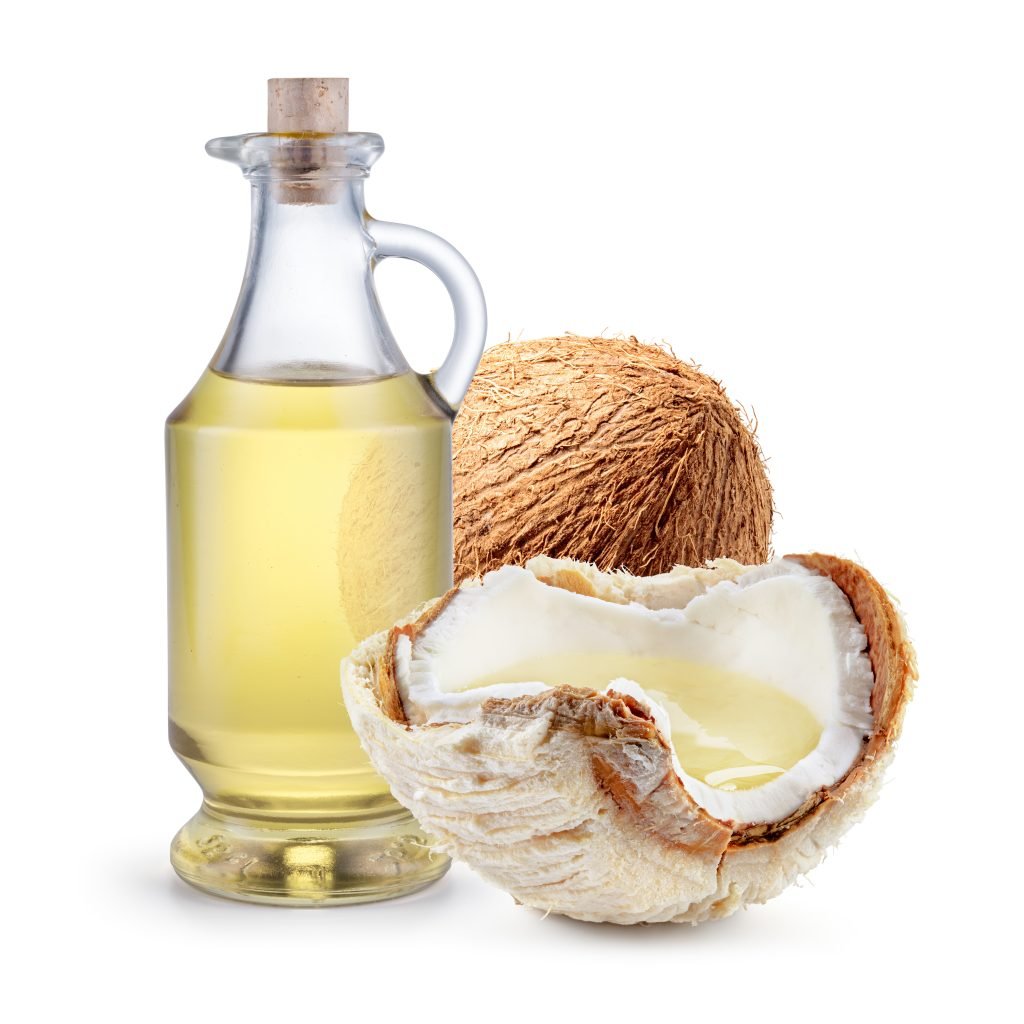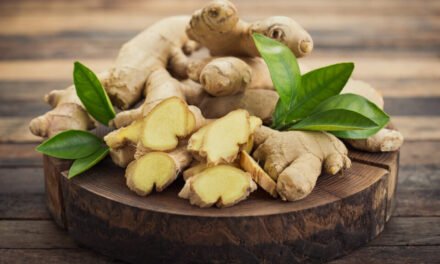
Top 8 Reason To Try Coconut Oil This Year

Many people like using coconut oil for cooking because it helps make the food taste better. But aside from being your preferred cooking oil option, admittedly, coconut oil has a lot of health benefits. If you’re looking for reasons to try out coconut oil, then you just got lucky because you may start reading about the product right now.
Here are eight reasons why you should try coconut oil:
1. Good For Your Skin
One benefit of coconut oil that you may have heard about is the fact that it can be good for your skin. Many women, and perhaps some men as well, can attest to the various cosmetic uses of coconut oil.
Coconut oil is usually applied directly to the skin in small amounts, making it a moisturizer. This is especially good for those with dry or cracked skin. Incidentally, one reason that coconut oil may benefit skin health is that it’s usually sold without additional perfumes, artificial coloring, or chemicals added to it – so you get the pure product.
Also, if you want protection from the sun’s UV rays while you’re outside, a layer of coconut oil on your skin will serve as a good barrier between you and the UV light.
In addition, if you have dry hair, you may also use it on your hair as a natural conditioner. This reason for this is because coconut oil seems to be particularly suited for absorption by dry hair shafts, even when compared to other oils, and there’s less protein lost from the hair shaft when coconut oil is used.
If you use coconut oil on the hair follicles, you may pull out less hair when you use your comb. This is because there’s less inflammation at the base of your hair shafts. For best results, it’s recommended that you massage your hair and scalp with coconut oil.
Some massage therapists use coconut oil on their patients. There are also women who use it to remove eye makeup.
Since it’s sourced from coconuts, it’s a plant-based cosmetic, which may help people who don’t want to use animal-based cosmetic products.
2. Edible
For those who know about the cosmetic uses of coconut oil only, you might be pleasantly surprised to know that you can actually consume coconut oil. Of course, you’ll have to consume the food-grade coconut oil and not the coconut-oil-derived cosmetic products.
There are also some products online that contain coconut-derived ingredients that you may want to try out, like granola bars. If you plan to consume food-grade coconut oil, women may consume as much as three tablespoons of it per day. Men with an active lifestyle can safely consume more than that.
3. Desirable for Cooking
Many cooks are familiar with using coconut oil in their cooking because it does help in the cooking process. It depends of course on your taste in cooking oil, but some cooks prefer it, especially in dishes like roasted, sauteed or stir-fried vegetables.
It’s also worth noting that some cooks replace the butter and cooking oils in certain dishes with coconut oil instead. So, if you run out of your “healthy” cooking oils, like olive oil, you may then switch to food-grade coconut oil. As a tip, to derive the best benefits from coconut oil, refrain from using it on high heat since this may affect the nutritional value of the oil.
In addition, you may try using coconut oil in drinks, such as coffee or tea, as a substitute for milk and sugar. As with other ingredients, for best results, use coconut oil in moderation.
4. Make You Less Hungry For Your Next Meal
One study showed that men who consumed coconut oil in the morning tended to be less hungry for their next meal compared to men who didn’t consume coconut oil for breakfast. Thus, those who consumed coconut oil seemed to eat less than those who were not given coconut oil at breakfast time.
This study also shows, based on the measurement of the participants’ waistlines, that coconut oil is beneficial in reducing belly fat.
5. Improve Your Immunity to Diseases and Illnesses
Another great aspect of consuming coconut oil orally is that the product has antifungal, antibacterial, and antiviral properties. This means that coconut oil helps your immune system fight off fungi, bacteria, and viruses that may harm you.
This resistance to diseases and illnesses is due to the high levels of lauric acid present in coconut oil. Thus, if you have some skin areas that have fungus, such as athlete’s foot, you may try applying coconut oil to those problem areas and observe if the fungal infection seems to diminish and even disappear.
Since coconut oil is reportedly able to remove fungi, bacteria, and viruses, unsurprisingly, some people use it as a mouthwash before brushing their teeth.
6. Coconut Oil May Help Diabetics
Some sources claim that coconut oil may benefit diabetics. There’s one study cited online that states that coconut oil might positively affect patients with Type 2 diabetes, though there’s no data about Type 1 diabetes. For Type 2 diabetes, the source claimed that the medium-chain fatty acids (MCFA) found in coconut oil may lessen obesity in the animal test subjects while reducing their insulin resistance.
Another source recommends that diabetics use virgin organic coconut oil for their cooking to derive the benefits of better nutrition such as increased absorption of magnesium and calcium and lessen inflammation. Since coconut oil is still a form of fat, specifically saturated fat, diabetics should still keep counting calories and use this type of fat in moderation.
However, there’s still a need to conduct more studies, especially on human subjects, before it can definitively be said that coconut oil can reduce the effects of Type 2 diabetes in people.
7. Promote Ratio of Good Cholesterol to Bad Cholesterol
Cholesterol is a trigger word for many people who automatically assume that it’s bad for you. However, the truth is that there’s good cholesterol and there’s bad cholesterol.
If you take coconut oil orally, it’ll have a corresponding impact on your ratio of good cholesterol to bad cholesterol. This is because coconut oil can boost your level of saturated fats, specifically the medium-chain fatty acids (MCFAs). This kind of fat can lessen your chances of developing heart disease.
People who need more fat in their diet, like men with jobs that require much manual labor, can also take coconut oil since it’s a calorie-dense edible ingredient.
However, if you’re on a weight loss diet, coconut oil is not that different from other oils. This means that if you consume too much of it, it’ll not induce weight loss and may even cause you to gain weight – cooking oil still has 14 grams of fat and 117 calories. So, it’s best to be careful when consuming coconut oil in your meals and daily diet.
8. Coconut Oil Can Trigger Release of Body Fat
In connection with the MCFAs details mentioned above, MCFAs can also allow you to burn more fats, especially when compared to the consumption of animal-derived fats. This means less fat will be stored in your body, which is helpful for people who have trouble with weight management and fat storage.
Also, coconut oil seems to hasten metabolism, so this means more calories will be burnt. If you consume less fat, more of your fat stores will probably be burned through your faster metabolism, leading to weight loss.
How To Choose Between Different Kinds of Coconut Oil
Before you go out and start buying a lot of coconut oil from your nearby grocery store, you should first try to differentiate between the different types of coconut oil available in the market.
- Virgin Coconut Oil: The label “virgin” is not yet adequately defined legally so you’ll find a lot of products out there labeled as “virgin coconut oil” or “extra-virgin coconut oil” without giving a clear definition of what it means.
The reason the word “virgin” is used to label coconut oil brands is because of the purported health benefits of virgin coconut oil when taken orally. Thus, when the term “extra virgin” is added to the coconut oil label, it may give the impression on consumers that this product is superior to the simple “virgin” coconut oils.
But, in reality, the terms “extra virgin” or “virgin” still need more legal definition, especially with regards to the efficacy of the products.
Virgin or extra virgin coconut oils are more expensive than other mass-marketed coconut oils, but seem to be more healthy for you since these retain much of the original nutrients, such as vitamins and minerals.
- Organic Virgin Coconut Oil: This is one of the more desirable coconut oils out there, though you may want to be more discriminating because some brands may capitalize on the word “organic” to push products that are not really that good.
Organic virgin coconut oil may be a better alternative to “hydrogenated” cooking oil because the latter has negative health effects.
- Fractionated Coconut Oil: This kind of coconut oil is processed through “fractional distillation,” which allows it to remain liquid despite being in cooler environments.
This product is not as good nutritionally as the “purer” kind of coconut oil, which is virgin or extra virgin coconut oil. However, it’s useful in some applications such as massage oil, hair conditioner, or skin moisturizer, which is why it’s packaged in pump bottles for ease of use.
- RBD Coconut Oil: Though you may find it harder to look for the term “RBD” on coconut oil products, it’s important to define this product because this kind of coconut oil is potentially dangerous to consume orally.
The term “RBD” (Refined, Bleached, and Deodorized) means it’s a highly processed product, so it’s not as good for you as the “virgin” or “extra virgin” coconut oil brands. The reason coconut oil becomes an “RBD” product is that the manufacturer wants to sustain the shelf life of the product.
One way you can tell if the product is “RBD” is simply by smelling it after you’ve opened the package. If it doesn’t have any smell, then it’s an RBD product. By contrast, virgin or extra virgin coconut oil smells very much like fresh coconut.
RBD coconut oil is mass-marketed, so it’s more readily available than virgin or extra virgin coconut oil and often much less expensive.
Because virgin or extra virgin coconut oils are believed to be healthier for human consumption, RBD coconut oil is favored for other non-edible applications instead, such as an ingredient for toiletries like skin cosmetics, moisturizers, and even bath soap. The reason for this is that RBD coconut oil has its coconut oil smell removed already so what is left is its function as a lubricant instead. It’s said that RBD coconut oil is also a good base for a consumer product if the manufacturer wants to add essential oils to it.
Conclusion
Just like many other ingredients being discussed online, coconut oil has its naysayers and its advocates. Though it would be irresponsible to jump on any “healthy” ingredient bandwagon just like that, the truth seems to be that coconut oil does have some health advantages, though it’s far from being the “all-around” cure that some websites would have you believe. The key here is to use cooking oil in moderation, just like any other ingredient in cooking, because you don’t really need to consume a lot per meal.
Coconut oil is also beneficial as an ingredient in some non-food applications, such as a component of soap, skin cosmetics, moisturizers, and lotions. Hence, you can also try using coconut oil products in non-food applications to benefit your skin and hair.
If you’re planning to incorporate coconut oil into your diet for health reasons, it’s best to select virgin or extra virgin coconut oil since those are the types of coconut oil that are least processed and are closest to the pure coconut extract, which has the most beneficial ingredients. If you’re observant, you may see changes in your health when you constantly consume virgin or extra virgin coconut oil.



































